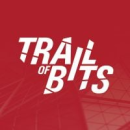Our money is transferred instantly via virtual bank accounts. Our informational sources are vast and thorough. Even online orders are delivered the next day. But the amazing expediency of the digital age comes with a cost. Namely, our privacy.
Our dozens of accounts spread throughout the web and protected only by often weak passwords include bank accounts, health records, birthdays, social security numbers and passport information.
Blockchain Cybersecurity Uses
- Maintaining cryptocurrency integrity
- Securing banking assets
- Protecting patient health records
- Revamping government cybersecurity protocols
- Safeguarding military and defense data
- Fortifying Internet of Things (IoT) devices
The information age explosion of online data has brought with it lapses in security protocols that regularly expose our most sensitive information to malicious actors. Finding a reliable cybersecurity protocol, therefore, is more important than ever before.
Industries across the board are latching onto new technology that promises to improve online safety, with blockchain cybersecurity leading the way.
Blockchain: A New Weapon in Cybersecurity
Cybercrime is such a vast and burgeoning underworld industry that it prompted Ginni Rometty, Chairman, President and CEO of IBM, to declare that “cybercrime, by definition, is the greatest threat to every profession, every industry, every company in the world.”
Both dangerous and costly, cybercrime costs the global economy an estimated $445 billion per year. Our current security protocols simply cannot keep up with the relentless and clever attacks.
Blockchain, a Distributed Ledger Technology (DLT), is focused on creating trust in an untrusting ecosystem, making it a potentially strong cybersecurity technology.
The ledger system is decentralized, but information is transparently available to members of the specific blockchain. All members (or nodes) can record, pass along and view any transactional data that is encrypted onto their blockchain.
This process creates trust while also maintaining a high level of data integrity. In essence, the distributed nature of blockchain provides no “hackable” entrance or point of failure that detrimentally exposes entire datasets.
The cybersecurity industry can benefit from blockchain’s unique features, which create a virtually impenetrable wall between a hacker and your information.
The transparent ledger allows for password-free entry. Using biometrics, including retina scans and fingerprints, the ledger can create a single-source, uncrackable form of entry into any private data.
Decentralized storage ensures that each block contains only a small informational piece to a much larger puzzle, limiting hackable data to almost nothing.
Finally, blockchain’s public record-keeping system gives each node an insight into any data manipulation, exposing potential cybercrime attempts in real time.
Blockchain in cybersecurity is widespread, and we’ve rounded up six industries that use it as a new weapon in the fight to protect our most sensitive information.
Blockchain and Cryptocurrency Integrity
First implemented as the operational network behind Bitcoin, blockchain is now used in more than 1,000 different cryptocurrencies, a number that grows almost daily.
DLT protects the integrity of cryptos through encryption methods and public information sharing.
The legitimacy of cryptocurrency purchases by individuals is ensured because they can trace the transfer of the currency to its origin. Encryption helps control the number of cryptocurrencies being created, thus stabilizing value.
These companies use blockchain as a cybersecurity protocol in cryptocurrency trading.
Blockchain and Cryptocurrency Integrity
Location: San Francisco, California
Many users know Cash App as a peer-to-peer payment platform, but the company has also moved into becoming a marketplace for buying and selling bitcoin. Cash App holds users’ bitcoin in their high-security storage, which is protected by its encryption technology. Despite the heightened security Cash App offers, when users want to access their bitcoin, they can withdraw it whenever they need it.
Location: Fully Remote
Coinbase is an exchange for users to buy and sell digital currency. Users can trade everything from Bitcoin to Litecoin to Ethereum on the company’s secure blockchain platform. Coinbase runs entirely on encryption. The company stores wallets and passwords in a secure database and requires employees to undergo a rigorous background check, all to ensure that their crypto is safe.
Location: San Francisco, California
MobileCoin develops an easy-to-use cryptocurrency for resource-constrained businesses that aren’t currently equipped to securely handle ledger information. The company’s crypto replaces third-party transaction vendors, and it keeps all transactional data between two peers encrypted. The boosted level of security helps companies keep transparent records in the public sphere.
Location: Atlanta, Georgia
Javvy built a universal “wallet” that stores and trades cryptocurrencies and tokens. The company’s blockchain-based app is fully decentralized, biometric-login-enabled and uses AI to detect fraudulent activity. Javvy’s app helps users manage their growing crypto stashes in a more secure way.
Location: Washington, D.C.
Founders Bank aims to be the world’s first decentralized bank. Instead of being owned by a central authority, the bank is owned by purchasers of its token-based equity. The company employs decentralized storage methods, an extensive public ledger system and encryption methods to make sure cryptocurrencies are traded and stored securely.
Banking and Blockchain
Wall Street has begun to take notice of blockchain’s bolstered security protocols. Traditionally known as slow movers in adopting new technologies, some of Wall Street’s largest financial institutions (including JP Morgan and Bank of America) are trying to stay ahead of the curve. JP Morgan Chairman and CEO Jamie Dimon said the bank has been looking at blockchain for solutions to cybersecurity issues.
Trillions of dollars in cash flow combined with outdated and centralized cybersecurity protocols make the largest banks constant targets of hacking and fraud. In fact, most multinational banks currently experience cyber attacks daily, with cyber criminals focused on operational risks. In its annual report, the US Office of the Comptroller of the Currency (OCC) said more sophisticated phishing attacks target employees who have access to credentialed information. The report suggests a multi-layered security protocol to decentralize risk — exactly what blockchain can provide. Here are three early adopters among “traditional” Wall Street banks that use blockchain technology to guard their most important data.
Location: Boston, Massachusetts
Santander was the first bank in the UK to adopt blockchain to securitize their international payments service. The bank’s blockchain enables customers to securely pay between Santander accounts in Europe and South America. In partnership with Ripple, Santander’s “One Pay FX” is now live in Spain, the UK, Poland and Brazil.
Location: London, England
Barclays filed a patent that would use blockchain technology to bolster security in fund transfers. The Wall Street bank is possibly looking to boost the popularity and stability of cryptocurrency transfers while using DLT to process these transfers. Along with its blockchain fund transfer patent, Barclays has a patent for know-your-customer processes that enables the bank to store all personal identifying customer information on a secure blockchain.
Patient Health Records and Blockchain
Like banking, the healthcare industry endures a constant barrage of cyber attacks. In fact, healthcare experiences twice the amount of phishing emails and malware attacks of any other industry. New challenges arise constantly and now include cyber-attacks on IoT devices that are disguised using encrypted malware.
Not only do healthcare companies, hospitals, doctors and clinics store patient banking information, they also possess important health records. Patient data is important to cyber criminals because it demands much more money on the black market — up to $250 per record. Credit card information is constantly stolen, but modern technology typically resolves any damage quickly. Exposing the social security numbers, full names, weights, heights, prescriptions and medical conditions of millions of patients can be detrimental. By threatening to release confidential information, hackers have already extorted millions of dollars from hospitals all over the world and will continue to do so unless new technologies are implemented.
Blockchain could be the badly-needed solution to a problem that puts patients and hospitals at severe risk. The DLT’s decentralized state allows only certain individuals to have small amounts of information that, if combined, would comprise a patient’s entire health chart. The distribution of only certain information to credentialed healthcare professionals ensures that cybercriminals cannot access all identifiable aspects of an individual’s health record.
Read about four healthcare companies that use blockchain cybersecurity measures to thwart attacks.
Location: Cambridge, Massachusetts
Philips Healthcare, part of the Philips Research firm, is pairing blockchain with AI to create a new healthcare ecosystem. In partnership with hospitals all over the world, the company uses AI to discover and analyze all aspects of the healthcare system, including operational, administrative and medical data. It then implements blockchain to secure the massive amounts of data collected.
Location: Nashville, Tennessee
Hashed Health is a healthcare innovation firm dedicated to helping the industry implement blockchain technologies. Consisting of Hashed Collective, Hashed Enterprise and Hashed Labs, which focus on different aspects of blockchain, Hashed Health’s ecosystem includes a blockchain healthcare community. Hashed Health has worked with dozens of healthcare companies and hospitals to build secure digital blockchain networks for patient information sharing and internal communication channels.
Location: Mountain View, California
Health Linkages uses blockchain to enable transparent data governance, further auditable analytics and boost compliance in the healthcare sector. The company’s blockchain enables only credentialed actors to share patient data, and it also maintains a chronological series of individual healthcare events, making healthcare decisions clearer for doctors.
Location: London, England
Medicalchain makes it easier for patients and healthcare professionals to access patient data with its blockchain platform. The company creates a centralized location for storing complete electronic health records, so patients and health groups know where to find accurate info. Patient data also isn’t stored directly on the blockchain, so approved personnel can find specific data without worrying about hackers compromising transfers.
Blockchain and Military and Defense Data
Innovation within the military and defense sectors has led to some of the biggest technological breakthroughs in the past century. The U.S. military pioneered the Internet to share important detailed information with dispersed groups all over the world, and it created GPS to better grasp military positioning. Will blockchain be the next breakthrough technology that’s promoted by the defense sector?
According to Accenture, 61 percent of aerospace and defense companies have adopted blockchain solutions. Blockchain is seen as a legitimate data safeguard for militaries, defense contractors and aerospace companies that house some of the most sensitive information.
These militaries and defense companies use blockchain’s encryption and decentralization methods to improve data security and maximize privacy.
Location: Bethesda, Maryland
Lockheed Martin is the first U.S. defense contractor to implement blockchain into its protocol. The company teamed up with Guardtime Federal to implement blockchain cybersecurity protocol measures in the engineering systems, supply chain risk management and software development.
Location: Arlington, Virginia
The Defense Advanced Research Projects Agency (DARPA) is the technology development branch of the U.S. Army and is looking into blockchain mainly for its usefulness in encryption and secure data transfer. Engineers created an encrypted, blockchain-based messaging system for U.S. military personnel to instantaneously share vital information to any location on the globe without worrying about foreign hackers listening in.
Location: Fully Remote
Trail of Bits’ cybersecurity consulting services cover a variety of areas, including blockchain. Its team members leverage their expertise in smart contracts, decentralized finance and other aspects of blockchain technology to identify vulnerabilities and develop tools and strategies for fortifying blockchain applications. For example, Trail of Bits produced a publicly available research report for DARPA on blockchain’s decentralized nature and the potential risk of exploitation, providing a “30-thousand-foot view of what’s currently known about blockchain technology.”
Internet of Things (IoT) Security and Blockchain
The Internet of Things (IoT) is a growing industry full of innovation, creativity and, consequently, cybersecurity issues. Nowadays, IoT products can be found in almost every aspect of our lives. From robo-sprinklers to Bluetooth-enabled bike locks to smart kitchen appliances, everything is wirelessly connected.
There have been thousands of reported IoT device hacks over the last few years, a number that will surely increase in light of estimates that there will be over 55 billion connected IoT devices by 2025. One cybersecurity-related report found that hackers were able to bypass the security measures in an implantable cardiac device, which gave them the ability to deplete the battery as well as administer incorrect heart shocks. Additionally, it was reported that hackers targeted the camera of a “smart” baby monitor by obtaining a simple IP address. The hackers had full control of the machine to watch through the camera and listen in on conversations.
As the IoT device market continues to grow, so too does the need for an enhanced form of cybersecurity. Blockchain provides a safe infrastructure for the transfer of data from one device to another without the interference of malicious actors. Decentralized control enables IoT devices to create audit trails and tracking methods for registering and using products.
These four companies are focusing on diminishing hacking opportunities and maximizing cybersecurity strength within the Internet of Things.
Location: San Jose, California
As part of the Trusted IoT Alliance, networking giant Cisco belongs to a group that is considering scaling technologies to enhance the security of IoT products. The company believes blockchain pairs well with IoT devices because the ledger technology eliminates single points of failure and secures data through encryption.
Location: Zug, Switzerland
Hdac’s blockchain platform for IoT devices supports everything from payments between devices to the safe transfer of data. The company claims its hardware wallets are immune to viruses because its blockchain platform runs on a hidden network. Already successful with smart wallets, Hdac pivoted to introducing blockchain IoT cybersecurity protocols to all connected devices in smart factories, smart homes and smart buildings.
Location: Palo Alto, California
Catering to IoT environments, Xage Security has built a blockchain-powered platform that comes with advanced security measures. The company follows a zero-trust remote access policy, meaning that team members can only execute authorized interactions. Hackers can no longer take advantage of broad or poorly defined permissions, allowing businesses to protect data that is transferred between devices.
Location: Austin, Texas
Grid+ delivers a more seamless experience for crypto users by guarding assets with its Lattice1 device and encrypted SafeCard. The Lattice1 provides a secure interface that can connect to various crypto wallets, networks and any MetaMask blockchain. Customers can then store their crypto assets on a SafeCard for additional protection and insert the card into their Lattice1 device when they’re ready to access their assets.
Blockchain and Government Cybersecurity Protocols
The Office of Management and Budget (OMB) published a damning report on the U.S. Government cybersecurity infrastructure, where phrases like “do not have the resources to combat the current threat environment” and “agencies lack visibility into what is occurring on their networks” are only the beginning.
The porous security can be improved with blockchain. The entire system runs on safe encryption of information, essentially putting a barrier between hackers and identifiable information. Encrypted data, decentralized information storage and publicly-visible ledgers can instill a new set of government cybersecurity priorities. Agencies would be able to quickly identify potential hacks and trace the manipulated data to its origin. These governments and agencies, in attempting to be among the first governmental blockchain adapters, are pioneering ways to implement DLT into everyday cybersecurity protocol.
The State of Colorado
Location: Denver, Colorado
The Colorado Senate passed a bill in May 2018 that implores the government to consider blockchain for data protection and the secure storage of records. Colorado reportedly experiences six to eight million attempted attacks each day, giving the state every reason to implement blockchain’s encryption methods to protect its most vital networks.
Australia
Location: Canberra, Australia
The Australian government is one of the world leaders in governmental blockchain implementation. The country recently prioritized the development of a cybersecurity network that runs on DLT. Australia partnered with IBM to create a governmental blockchain ecosystem for securely storing government documents. The country’s federal government hopes this will be seen as a model for other governments going forward.
Malta
Location: Valletta, Malta
Malta is quickly embracing blockchain in its bid to become “#BlockchainIsland.” The small nation has implemented blockchain cybersecurity measures in its finance sector, and the government is looking into how the ledger technology could be useful in safeguarding government documents and sensitive citizen information.





















